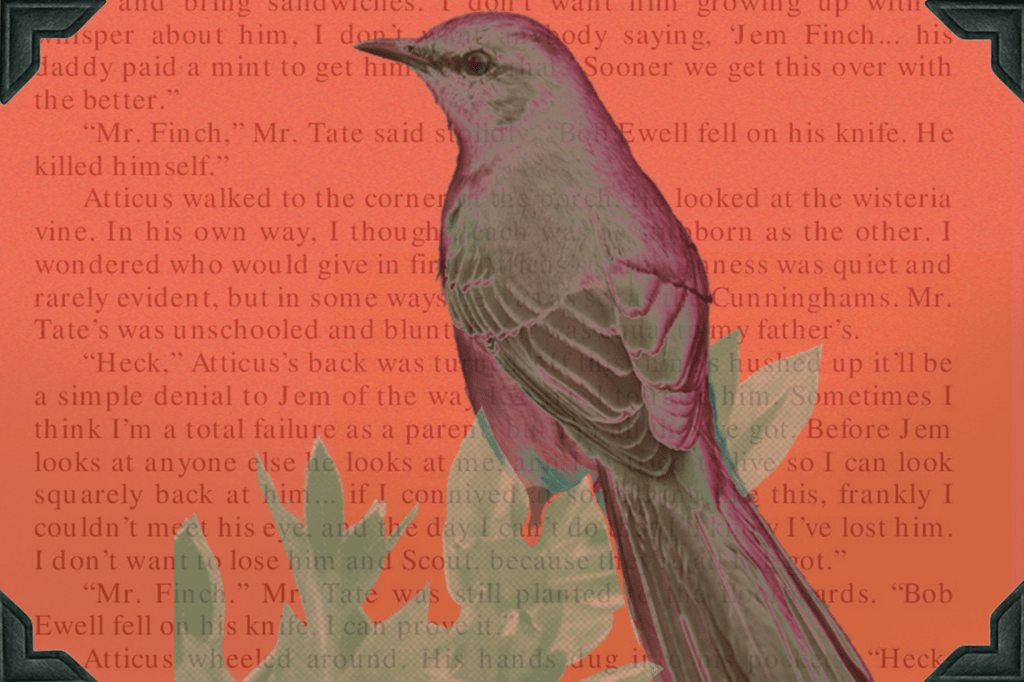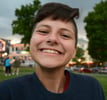To celebrate LGBTQ History Month this October, we are honoring voices like Sam Kiss'. His essay was a finalist in the 2016 Facing History Together Student Essay Contest, which asked students to draw upon themes from Harper Lee's classic, To Kill a Mockingbird. He shared his personal story about what it was like to come out to his family as a transgender boy.

In the novel To Kill a Mockingbird, the mockingbird represents something innocent and good. All my life, there has been a mockingbird fluttering around in my heart. I have hidden the most honest part of me. I used to believe that this caged bird between my lungs was an inevitable side effect of living.
It was just a year ago that I let the mockingbird free.
I am a transgender boy. In our society, pronouns are the hallmark of our humanity. People are accustomed to being addressed correctly. I am the anomaly, the mistake, the mockingbird. I have no heroes in the media. I have never met an adult like myself. I grew up in a culture that denied my existence and sheltered me in lonely silence. It is a blessed rarity to be seen right.
My fondest memory is when I held the door for someone and they said, “Thank you, sir!” without a tinge of doubt. For the longest time, I felt disgusting and wrong. Being myself meant renouncing my past. It would mean telling my parents I wasn't their little girl and telling my grandparents they no longer had a granddaughter. I didn’t want to force them to mourn the girl they loved. My military family is frequently moving. I couldn’t bear to lose the only constant friendship I’d ever had.
The first time I spoke these feelings aloud was to my mom. She said she still loved me but I misinterpreted the months of quiet that followed as disapproval. My insecure soul hungered for a louder affirmation.
I told my aunt on New Year’s Eve.
We were walking together through the hopeful streets of D.C. at night. It was a finely crafted moment, a house of cards built upon the earthquake of my shaking hands.
She opened the conversation like a love letter. “What are your new year’s resolutions?”
“I want to be more honest.” I said, silently begging for her to press for more.
“With anything specific?” My aunt is enamored with specificity.
There was a very pregnant pause as I struggled for the words. In that exact moment we were walking on a wiry bridge surrounded by a tunnel of steel and I remember feeling like a caged bird as I looked to the glittering stars above. I felt my throat tighten and choked out the truth.
“I think I’m a boy.”
After a pause she answered the question that had been forming on the tip of my tongue like water vapor condensing into a storm cloud.
“I still love you,” she said it as if it were the most obvious thing in the world.
The words washed over me. I wasn’t a disappointment. I was good and innocent. I realize now that coming out isn't a funeral for my past self, but a celebration for the birth of the man I always wanted to be. I’m thankful that my friends and family did not kill the mockingbird. At last, I fly free.
Understanding other points of view can help break down "us" and "them" mentalities while making us explore our own identities. Examine the importance of different narratives with a lesson from our Teaching Mockingbird resource. "Scout as Narrator: The Impact of Point of View" dives into both the value and limitations of attempting to “walk in someone else’s skin.”


